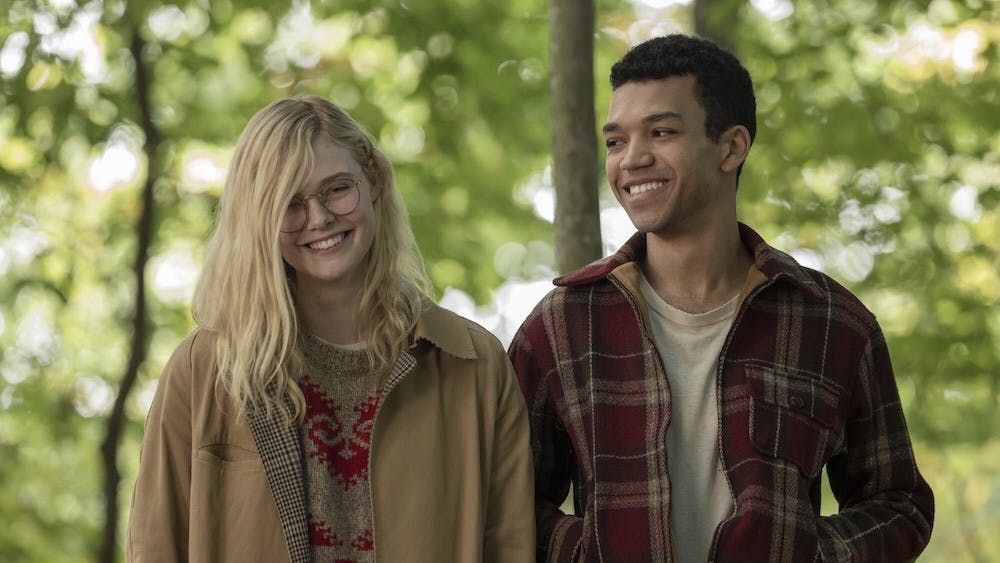In the Netflix adaptation of Jennfer Niven’s 2015 novel, All the Bright Places, two high school seniors, Violet Markey (Elle Fanning) and Theodore Finch (Justice Smith) navigate falling in love and self growth, amidst their tragic pasts that have led them into a downhill spiral of self loathing and depression.
Often romances are destined for misfortune. Director Brett Haley keeps viewers who have not read the novel hopeful though, as Markey progresses from someone who once ran in the popular crowd to someone who wants nothing to do with the outside world, to once again, someone who is open to finding tenderness and peace of mind with someone like Finch.
Viewers learn from the opening scene that Markey is dealing with some extensive demons, as both viewers and Finch meet her standing on the ledge of the bridge her sister died. Although Markey insists she is not suicidal, it is clear that she is.
As for Finch, viewers see him as someone who is snarky, rebellious and everything Markey isn’t. From the moment their friendship unravels, it is evident they are going to be unlikely friends.
What makes All the Bright Places so captivating is the beautiful scenery that is supposed to be representative of Indiana, the gentle music and the raw acting between the two protagonists. Both actors illustrate what it is like to be in love and in despair all at once.
However, similar to the classic A Star is Born storyline, as Markey begins to cope with her pain and losses, Finch begins to pull further and further away from her. He never details the bullying he has endured because of his “freak” nickname, the abuse he suffered at the hands of his father and the likely temper and bipolar attitude he has stored away.
Smith’s acting is truly profound as he encapsulates what living in high school is like for a depressed, black male teen. Finch and many boys alike shelter their true feelings by putting on a facade of being humorous and rebellious in hopes of convincing others that they are okay.
Though All the Bright Places has all the elements to an exceptional film, the problem is that it is not a movie to help the depressed find hope and heal — it’s for those who are left to deal with the aftermath of someone else’s depression and life. The film does not provide much suggestion as to what someone should do if they find themselves in Finch’s place rather than Markey’s.
Nonetheless, All the Bright Places is heavy on the heart and soul as it is relatable, funny and poignant all at once. With all the sadness that the film brings, it strategically incorporates love to remind audiences that it is an essential aspect to life that cannot be avoided, similar to death.






